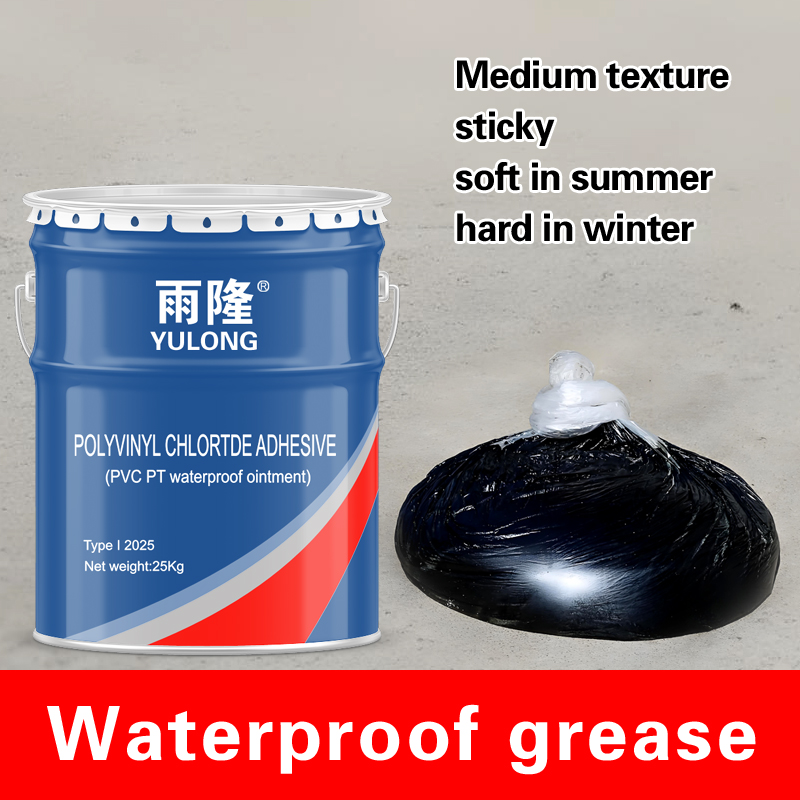Asphalt Mastic
Bituminous Sealant (also known as PVC Mastic) is a flexible sealing material widely used for structural joints in construction. It offers excellent waterproofing, flexibility, and aging resistance.

I. Product Advantages
- Excellent waterproofing.
- Flexibility.
- Aging resistance.
- Strong adhesion to various substrates, ensuring long-lasting sealing.
- Good crack-bridging ability, adapting to structural movement without losing effectiveness.
- Chemical resistance, making it suitable for use in harsh environments.
II. Application Scope
- Expansion joints, settlement joints, and construction joints in various buildings.
- Sealing joints in underground structures such as subways, tunnels, and basements.
- Waterproofing joints in municipal projects like bridges and culverts.
- Transition seams between roof panels and parapet walls or eaves.
- Expansion joints in water storage facilities like pools and and water towers.
- Repair and sealing of metal roofs and pipe penetrations.
III. Technical Specifications
| Asphalt Mastic Technical Specifications | |
|---|---|
| Appearance | Black viscous solid |
| Density | ≥ 1.2 g/cm³ |
| Heat Resistance | No flow (105°C, 2 hours) |
| Low Temperature Flexibility | No cracking (-20°C, 1 hour) |
| Adhesion Strength | ≥ 0.3 MPa (to concrete) |
| Curing Time | Surface dry ≤ 4h, Fully cured ≤ 24h |
| Water Resistance | No blistering or peeling (48h immersion) |
| Application Method | Scraping, joint filling, hot melt or cold application |
IV. Construction Process
① Non-heating Process
Crack Cleaning
Drying the Joint
Filling the Crack
Cooling and Curing
Inspection
② Heating Process
Crack Cleaning
Drying the Joint
Heating the Mastic
Filling the Crack
Cooling and Curing
Inspection